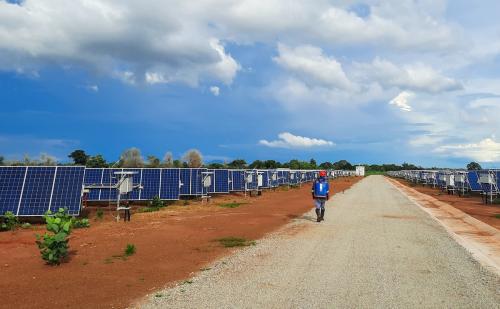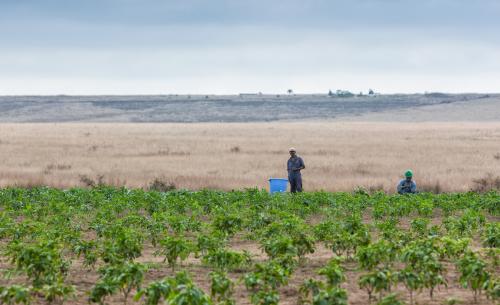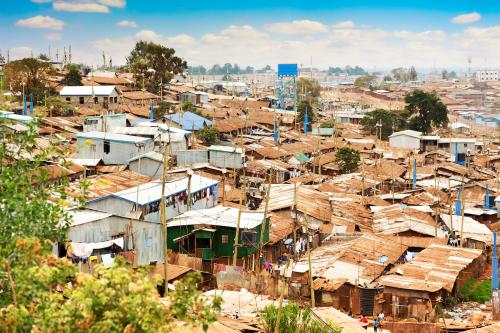This viewpoint is part of Foresight Africa 2024.
Climate change is having increasingly disastrous effects on human health and well-being, especially in Africa, and protecting and promoting health is a powerful argument for climate action. Ultimately, the climate crisis is a health crisis.
More than half of the public health events reported in Africa during the first two decades of the 21st century are identified as climate-related health emergencies, according to a recent analysis by the WHO. This already worrying trend is accelerating. There were 25% more climate-related events recorded between 2011 and 2021 when compared with the previous decade.1
The population of Africa is projected to almost double to 2.5 billion by 2050, and along with increasing urbanization, that will mean more people living in areas exposed to hazards such as extreme heat waves and floods. Unless adaptation measures are implemented, the toll of deaths, injuries, and illness due to climate disasters will continue to increase rapidly.
Under the umbrella of the historic 2008 Libreville Declaration on health and environment, the WHO supports countries to cope with the impacts of climate and environmental change on health systems, while networks such as Clim-Health Africa support multisectoral work and capacity building for climate-related health emergencies in Africa.
Following COP26 in Glasgow in 2021, with support from the U.K., Egypt, and the United Arab Emirates, the WHO launched the Alliance for Transformative Action on Climate and Health (ATACH). So far, 75 countries have committed to ATACH, 29 of them from Africa—allowing them to learn quickly from each other and from partners and to accelerate assessments, planning, and implementation to build climate-resilient and sustainable low-carbon health systems.
In many respects, African countries are ahead of the curve in climate adaptation. For example, the WHO is supporting Mozambique to connect climate information to health surveillance and planning to guide a faster and more effective early warning and response system to health risks from cyclones to malaria transmission. We are also working with Somalia to power essential health equipment in rural health clinics with cheap, clean, and reliable electricity from solar panels—leapfrogging the need for connection to an electrical grid. These interventions save lives now, provide resilience from climate change, and offer a vision of a greener and healthier continent.
The WHO welcomes the leadership of the United Arab Emirates in dedicating an entire day of COP28 to health. This is a critical opportunity for driving system transformation, strengthening support on adaptation and resilience, and financing climate and health, specifically for the African continent, which is one of the most-affected regions while a minimal contributor of greenhouse gas emissions.
To promote the human right to health and a healthy environment, the global health community is calling for health to be explicitly integrated into United Nations Framework Convention on Climate Change negotiation texts and outcomes. Climate change is having increasingly disastrous effects on human health and well-being, especially in Africa, and protecting and promoting health is a powerful argument for climate action. Ultimately, the climate crisis is a health crisis.
-
Footnotes
- WHO Africa. 2022. “Africa faces rising climate-linked health emergencies.”
The Brookings Institution is committed to quality, independence, and impact.
We are supported by a diverse array of funders. In line with our values and policies, each Brookings publication represents the sole views of its author(s).








Commentary
Needs and opportunities for addressing the nexus of climate change and public health in Africa
May 9, 2024